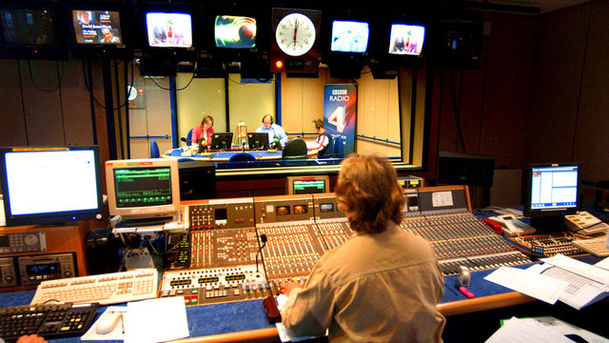Today - 23/09/2009

Presented by Sarah Montague and Evan Davis. Official guidance on who will and who will not be prosecuted for breaking the law on assisted suicide are to be released. Simon Gillespie, chief executive of the Multiple Sclerosis Society, considers why none of the cases where individuals have been helped to travel abroad to commit suicide have led to a prosecution. A small but statistically significant number of patients die each year when junior doctors start work in August, a study suggests. The author of the report, Dr Paul Aylin of Imperial College, London, and Nigel Edwards, policy director at the NHS Confederation, discuss results that show patients in August were six per cent more likely to die. China will increase efforts to improve energy efficiency and curb the rise in CO2 emissions, President Hu Jintao has told a UN climate summit in New York. Anthony Froggatt, Senior Research Fellow at the Royal Institute of International Affairs, explains the significance of this speech. The RSPB is publishing the results of its summer wildlife survey. Grahame Madge, a spokesman for the Society, reveals results which suggest that a quarter of UK gardens are home to foxes and hedgehogs. Banks must focus on restoring the public's trust in their role, despite signs of economic improvement, the boss of the UK financial watchdog has said. Financial Services Authority (FSA) chairman Lord Turner discusses whether the industry should walk away from activities that had no 'social benefit'. Australia's biggest city, Sydney, has been shrouded in red dust blown in by winds from the deserts of the outback. Correspondent Phil Mercer reports on dust blanketing eastern parts of New South Wales, creating havoc on the roads and causing a surge in emergency calls from those with breathing problems. Prince William has been speaking for the first time about his charitable work. He told the BBC he wants to be more than just a royal 'ornament'. Royal correspondent Peter Hunt talks to the prince about The Princes' Charities Forum, set up to encourage different royal charities to work together. Thought for the Day with Abdal Hakim Murad, Muslim Chaplain at the University of Cambridge. Gordon Brown is to tell the UN he is willing to cut the UK's fleet of Trident missile-carrying submarines from four to three. Political editor Nick Robinson, who is travelling with the prime minister, discusses what will be contained in Mr Brown's speech. Prof Ron Smith, a defence economist at Birkbeck College, discusses the implication of this announcement. Guidelines on assisted suicide law in England and Wales will be published later to clarify when people are likely to be prosecuted. The Director of Public Prosecutions, Keir Starmer QC, discusses what guidance will be given. The prime minister is expected to propose scaling back Britain's nuclear deterrent when he speaks at the United Nations. Sir Menzies Campbell, a former Liberal Democrat leader, considers whether the Trident fleet of submarines should be cut from four to three. Music veterans Chas and Dave have split after 35 years together, their agent has announced. Bassist and singer Dave Peacock is to retire from the music business following the death of his wife Sue from lung cancer. Chas Hodges, the othe member of Chas and Dave, explains why the decision was made. At what age should doctors begin to treat young people who want a sex change? Mother 'Sharon' and daughter 'Nicky' tell their story. Clinical psychologist Dr Polly Carmichael, of London's Tavistock Centre, discusses whether prepubescent teens should be allowed medicine which would stop them developing the adult bodies that they would otherwise grow into. The sculptor and former Turner Prize winner Anish Kapoor has become the first living artist to be given a solo show at the Royal Academy in London. The artist himself gives Evan Davis a guided tour round an exhibition which includes a wax cannon and giant metal spheres seemingly suspended in the air. For the first time, the Ministry Of Defence has allowed the BBC to follow wounded soldiers as they are flown back from Helmand Province in Afghanistan. Defence correspondent Caroline Wyatt reports from the Selly Oak hospital in Birmingham, where 31 soldiers are currently being treated. Cooking caused the extraordinary transformation of our ancestors from ape-like beings rather than, as previously assumed, meat eating, a new book argues. Richard Wrangham, Professor of Biological Anthropology at Harvard University, examines whether eating cooked food allowed the human brain to grow and helped structure human society.